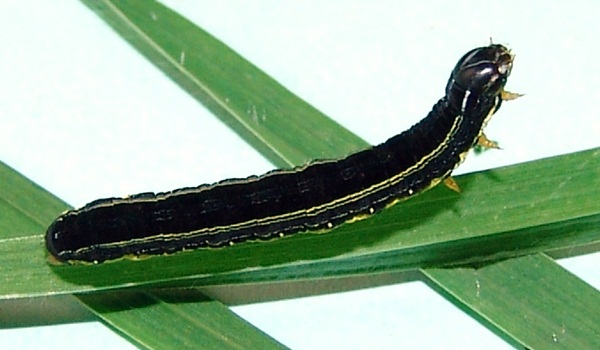Rise of Agriculture in the past 300 years
This glimpse of agricultural expansion over recent centuries, courtesy of Bill Rankin, tells us a compelling story of the importance of farming in the modern world. However, the increaase in land dedicated to farming does not necessarily translate to the increase in food and income to sustain people- not while 40% of these crops is lost to pests before it can even be harvested. Is it time to grow more…
Plantwise launches in Ghana
Plantwise, a global initiative run by CABI, was launched in Accra, Ghana last week. The initiative involves establishing plant clinics, which farmers can attend to get advice on plant health from trained plant doctors. In addition to the knowledge they acquire through the training programmes, these plant doctors can make use of the Plantwise Knowledge…
Improving Food Security Using Agroforestry Schemes
Agroforestry is an integrated system of trees and shrubs and/or crops and livestock within a managed agriculture area and has potential in improving food security in developing countries by fully utilising land, improving crop yields, diversifying farmer income and improving environmental sustainability. Last month the United National Food and Agriculture Organisation (FAO) published an “Advancing Agroforestry…
How The Gates Foundation and Carlos Slim are Supporting Innovation and Crop Improvement For Farmers
The Bill & Melinda Gates Foundation and Fundación Carlos Slim have announced a partnership in support of efforts by the Centro Internacional de Mejoramiento de Maíz y Trigo (International Maize and Wheat Improvement Center CIMMYT) in Mexico to develop and disseminate higher-yielding, more resilient wheat and maize varieties.
Plantwise Photo Of The Month – February
To read more about plant clinics in Nepal and to watch a video of a plant clinic in action, click here. To find out more about plant pests and diseases in Nepal visit the Plantwise Pest Distribution map
The Climate Reality Project- Coffee Production Hit by Climate Change
[ustream id=27051308 hwaccel=1 version=3 width=480 height=302] Video streaming by Ustream Recently aired as part of The Climate Reality Project (founded by Al Gore), this documentary contains a 5 minute film about climate change and smallholder coffee production in Colombia. The film featured as part of a 24 hour online stream of climate documentaries and discussions…
Armyworms devastate crops in Zambia, threatening food security
Armyworms in Zambia are threatening food security by reducing crop yields. This was the message from former Agriculture Minister Eustarkio Kazong, speaking in an interview for Zambian radio station, QFM. Armyworms are attacking crops, causing major damage to maize, cassava, sorghum and rice. In Kabwe, the capital of the Central Province where the first cases…
Research Projects Into Improving Crop Plants Receive Major Funding
The University of Illinois has received a five year, $25 million grant from the Bill & Melinda Gates Foundation to improve the photosynthetic properties of key food crops, such as rice and cassava. The project, entitled ‘RIPE- Realising Increased Photosynthetic Efficiency’ has the potential to benefit farmers by improving the productivity of staple food crops. Increasing photosynthetic efficiency…
Typhoon Devastates 10,000 ha of Banana Plantation In the Philippines
The Philippines, the world’s third largest exporter of bananas, has lost up to a quarter of its banana plantations after typhoon Pablo, also known as typhoon Bopha, struck. The typhoon is one of the most powerful ever recorded in the island of Mindanao and has caused the deaths of over 400 people as well as…
Is sustainable agriculture the answer to climate change?
As the most recent set of climate change talks draw to a close, the focus is once again on the policies that could help in the resolution of this global issue. There has been little faith in the outcomes of these talks before, with targets continuously missed. The conference aims to secure a new treaty…


